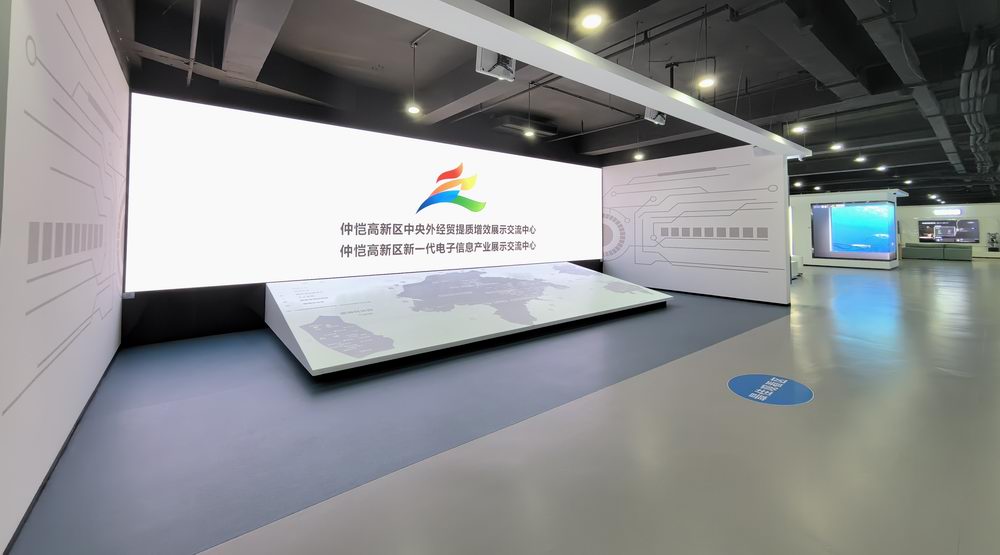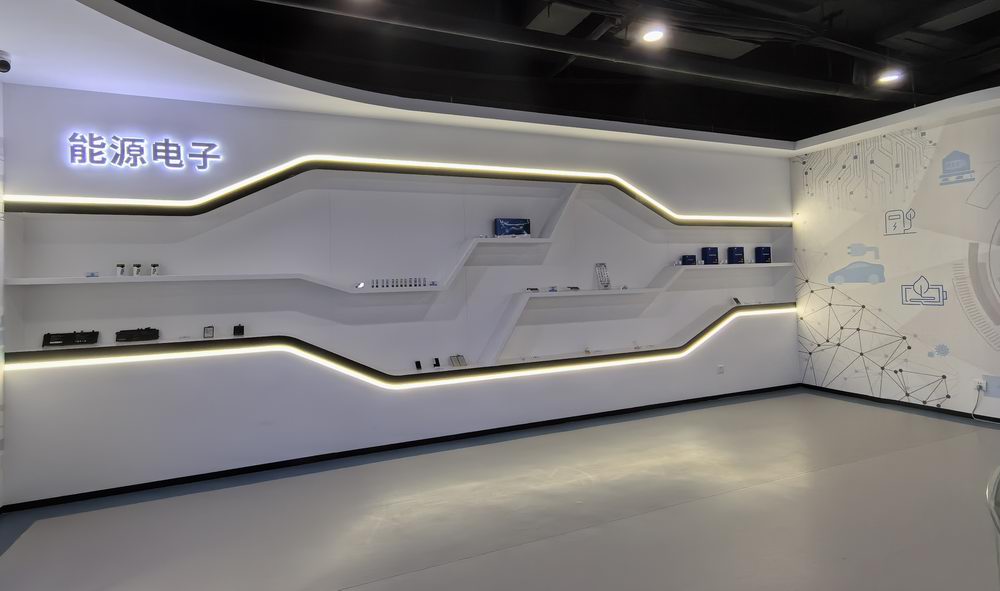How AI is Transforming Supply Chain Efficiency

Artificial Intelligence (AI) is crucial in revolutionizing supply chain management. Companies experience up to a 50% reduction in forecasting errors and a 65% decrease in lost sales. AI-powered supply chains are 67% more efficient, improving demand forecasting, quality control, and inventory management. The global market places high value on supply chain efficiency, with AI expected to contribute $15.7 trillion to the economy by 2030. Smart Logistics and Supply Chain Management, exemplified by Desay's innovations, highlight AI's transformative influence. The Huizhou Zhongkai High-tech Zone, a National Foreign Trade Transformation and Upgrading Base, supports businesses by enhancing development through its electronic information cloud platform.
Understanding AI in Supply Chain Management
Definition and Components of AI
Artificial Intelligence (AI) is changing the way supply chains operate. The technology includes several key components that work together to enhance efficiency.
Machine Learning
Machine learning allows systems to learn from data. This component helps predict demand and optimize inventory levels. Companies use machine learning to reduce forecasting errors by up to 50%. This reduction leads to fewer lost sales and better product availability.
Natural Language Processing
Natural Language Processing (NLP) enables computers to understand human language. NLP helps in managing customer inquiries and processing orders efficiently. Businesses use NLP to improve communication within the supply chain.
Robotics and Automation
Robotics and automation streamline logistics operations. These technologies automate repetitive tasks, reducing human error. Automation provides real-time insights that help make faster decisions. Companies see a 40% improvement in supply chain efficiency through automation.
Historical Context and Evolution
AI has a rich history in supply chain management. Understanding its evolution helps grasp its current impact.
Early Adoption in Supply Chains
Early adopters of AI in supply chains focused on basic automation. Initial implementations aimed at reducing manual labor and improving accuracy. These early efforts laid the groundwork for more advanced applications.
Recent Technological Advancements
Recent advancements in AI have revolutionized supply chains. Predictive analytics now play a crucial role. AI solutions cut forecasting errors and reduce sales losses by up to 65%. These improvements enhance supply chain optimization and resilience.
Key Drivers for AI Adoption
Several factors drive the adoption of AI in supply chains. These drivers highlight the benefits AI brings to businesses.
Cost Reduction
AI helps companies reduce costs significantly. Automation-based analytics identify cost-saving opportunities. Businesses can streamline operations and lower expenses.
Demand for Real-time Data
Real-time data is essential for modern supply chains. AI provides the tools to process vast amounts of information quickly. Companies gain insights that lead to faster and more informed decisions.
Competitive Advantage
AI offers a competitive edge in the market. Businesses using AI can predict trends and respond to changes swiftly. This agility helps maintain a strong position in the industry.
The Huizhou Zhongkai High-tech Zone plays a vital role in supporting businesses with AI. The National Foreign Trade Transformation and Upgrading Base, through its electronic information cloud platform, assists enterprises. Companies in the zone benefit from enhanced development and growth opportunities.
Smart Logistics and Supply Chain Management

Role of AI in Smart Logistics
AI has become a game-changer in smart logistics. Companies use AI to make logistics smarter and more efficient. AI helps businesses predict future trends with precision. Predictive analytics allows companies to anticipate demand and adjust their operations accordingly. This foresight reduces waste and improves customer satisfaction.
Predictive Analytics
Predictive analytics is a powerful tool in logistics. Businesses analyze historical data to forecast future demand. Accurate predictions help companies manage resources effectively. Companies reduce costs by avoiding overproduction or stockouts. Predictive analytics ensures that products reach customers on time.
Inventory Optimization
Inventory optimization keeps supply chains running smoothly. AI helps businesses maintain the right amount of stock. Companies avoid excess inventory, which ties up capital. AI-driven systems monitor sales patterns and adjust inventory levels. This approach minimizes storage costs and maximizes efficiency.
Case Study: Desay's Implementation
Desay stands out as a leader in AI-driven logistics solutions. The company uses AI to enhance operational efficiency. Desay's innovative approach sets a benchmark for others.
AI-driven Logistics Solutions
Desay employs AI to streamline logistics processes. The company uses advanced algorithms to optimize routes and schedules. AI helps Desay reduce transportation costs and improve delivery times. The integration of AI into logistics operations boosts overall performance.
Impact on Operational Efficiency
The Huizhou Zhongkai High-tech Zone supports Desay's efforts through its electronic information cloud platform. This platform provides valuable resources and insights for continuous improvement.
Benefits of AI in Supply Chain Efficiency
Enhanced Demand Forecasting
AI has transformed demand forecasting in supply chains. Businesses using AI can predict demand with remarkable accuracy.
Predictive Analytics
Predictive analytics plays a crucial role in demand forecasting. Companies analyze historical data to anticipate future demand. This approach reduces forecasting errors by up to 50%. Businesses can avoid overproduction and stockouts, leading to fewer lost sales.
Inventory Optimization
Inventory optimization ensures that companies maintain the right stock levels. AI-driven systems monitor sales patterns and adjust inventory accordingly. This method minimizes storage costs and maximizes efficiency. Companies experience a 65% decrease in lost sales due to better inventory management.
Improved Operational Efficiency
AI significantly boosts operational efficiency in supply chains. Businesses streamline processes and reduce costs through automation.
Automation of Repetitive Tasks
Automation handles repetitive tasks, freeing up human resources for more complex activities. AI-powered systems perform tasks faster and with greater accuracy. Companies see a 40% improvement in efficiency by automating routine operations.
Streamlined Logistics and Transportation
AI optimizes logistics and transportation, leading to cost savings. Businesses use AI to plan routes and schedules more effectively. This optimization reduces transportation costs and improves delivery timelines.
Better Decision Making
AI enhances decision-making capabilities in supply chain management. Data-driven insights and risk management become more accessible.
Data-driven Insights
AI processes vast amounts of data to provide valuable insights. Companies gain a deeper understanding of their operations. These insights lead to informed decisions that improve overall performance.
Risk Management
AI helps businesses manage risks more effectively. Companies use AI to identify potential disruptions and respond quickly. This proactive approach minimizes the impact of unforeseen events on supply chains.
The Huizhou Zhongkai High-tech Zone supports businesses in harnessing AI's benefits. The National Foreign Trade Transformation and Upgrading Base, with its electronic information cloud platform, provides essential resources. Companies in the zone enjoy enhanced development and growth opportunities.
Challenges and Considerations
Implementation Barriers
High Initial Costs
AI technology demands significant investment. Companies face high initial costs when implementing AI in supply chains. These expenses include purchasing advanced software and hardware. Training employees to use AI systems also adds to the cost. Many businesses struggle to justify these upfront expenses. The Huizhou Zhongkai High-tech Zone offers support through its electronic information cloud platform. This platform helps companies manage costs by providing resources and guidance.
Integration with Existing Systems
Integrating AI with current systems presents challenges. Many supply chains rely on outdated technology. These systems often lack compatibility with AI solutions. Businesses must upgrade their infrastructure to accommodate AI. This process requires time and expertise. Companies in the Huizhou Zhongkai High-tech Zone benefit from expert assistance. The cloud platform provides tools to facilitate seamless integration.
Ethical and Privacy Concerns
Data Security
AI relies heavily on data. Protecting this data is crucial for businesses. Data breaches pose a significant risk to supply chains. Companies must implement robust security measures to safeguard information. The electronic information cloud platform in the Huizhou Zhongkai High-tech Zone offers security solutions. These tools help businesses protect sensitive data from unauthorized access.
Bias in AI Algorithms
AI algorithms can exhibit bias. This bias affects decision-making processes in supply chains. Companies must ensure that AI systems remain fair and unbiased. Regular audits and updates help address this issue. The Huizhou Zhongkai High-tech Zone supports businesses in maintaining algorithm integrity. The cloud platform provides resources for monitoring and improving AI systems.
Workforce Implications
Job Displacement
AI automation impacts the workforce. Many fear job displacement due to AI adoption. Automation reduces the need for manual labor in supply chains. Workers face uncertainty about their future roles. The Huizhou Zhongkai High-tech Zone addresses these concerns. The electronic information cloud platform offers training programs. These programs help workers adapt to new technologies and roles.
Need for Reskilling
AI technology requires a skilled workforce. Employees must learn new skills to work with AI systems. Reskilling programs become essential for businesses. The Huizhou Zhongkai High-tech Zone provides valuable support in this area. The cloud platform offers educational resources and training opportunities. Companies can upskill their workforce to meet AI demands effectively.
Real-world Applications and Case Studies

Successful AI Implementations
AI has made a significant mark in supply chain management. Companies have embraced AI to enhance logistics and inventory management.
Company A's Use of AI in Logistics
Company A has revolutionized logistics with AI. The company uses AI to optimize routes and schedules. This approach reduces transportation costs and improves delivery times. AI helps Company A identify bottlenecks and streamline operations. The company experiences a 40% boost in logistics efficiency. AI enables real-time tracking of shipments, ensuring timely deliveries.
Company B's AI-driven Inventory Management
Company B excels in inventory management through AI. The company uses AI to predict demand accurately. This precision minimizes overstock and stockouts. AI-driven systems monitor sales patterns and adjust inventory levels dynamically. Company B reduces inventory holding costs by 30%. AI enhances decision-making, leading to better resource allocation.
Lessons Learned from Failures
AI implementation comes with challenges. Learning from failures provides valuable insights for future success.
Case Study of AI Missteps
A notable case study highlights AI missteps in supply chains. The company faced issues with data integration. Incompatible systems led to inaccurate predictions. The company struggled with high initial costs and lacked skilled personnel. These challenges hindered AI adoption and reduced expected benefits.
Strategies for Overcoming Challenges
Overcoming AI challenges requires strategic planning. Companies should invest in compatible infrastructure. Training programs help employees adapt to AI systems. Collaboration with experts ensures smooth integration. Businesses must allocate resources for continuous monitoring and improvement. The Huizhou Zhongkai High-tech Zone offers support through its electronic information cloud platform. This platform provides resources and guidance for successful AI implementation. Companies in the zone benefit from enhanced development and growth opportunities.
Future Trends and Developments
Emerging AI Technologies
AI technologies keep evolving, and new trends are emerging in supply chain management. These developments promise to reshape how businesses operate.
AI and IoT Integration
AI and the Internet of Things (IoT) are joining forces. This integration allows devices to communicate and share data seamlessly. Supply chains benefit from real-time monitoring and control. Companies can track inventory levels and monitor equipment health. This connectivity enhances efficiency and reduces downtime.
Blockchain and AI Synergy
Blockchain technology is making waves in supply chains. When combined with AI, blockchain offers transparency and security. Businesses can verify transactions and trace products from origin to destination. This synergy reduces fraud and ensures product authenticity. Companies gain trust and confidence from customers.
Potential Impact on Global Supply Chains
AI's influence extends beyond individual companies. Global supply chains stand to gain from AI advancements.
Sustainability and AI
Sustainability is a growing concern for businesses. AI helps companies reduce their environmental footprint. Predictive analytics optimize resource use and minimize waste. Companies can plan routes that cut fuel consumption and emissions. AI-driven solutions support eco-friendly practices.
AI in Crisis Management
Supply chains face disruptions from natural disasters and other crises. AI offers tools for effective crisis management. Companies use AI to predict potential disruptions and develop contingency plans. Real-time data helps businesses respond swiftly to changing conditions. AI enhances resilience and ensures continuity in challenging times.
The Huizhou Zhongkai High-tech Zone plays a crucial role in supporting these advancements. The National Foreign Trade Transformation and Upgrading Base, with its electronic information cloud platform, provides essential resources. Companies in the zone benefit from enhanced development and growth opportunities. The platform offers tools and insights that help businesses stay ahead of the curve.
AI is revolutionizing supply chain efficiency by enhancing decision-making and streamlining operations. Companies benefit from AI's ability to process vast data, predict trends, and automate tasks. The Huizhou Zhongkai High-tech Zone plays a crucial role in this transformation. The electronic information cloud platform supports businesses by providing essential resources and insights. Companies in the zone experience growth and development through these advancements. AI will continue to shape the future of supply chain management, offering new opportunities and challenges. Embracing AI ensures businesses remain competitive and resilient in a rapidly changing landscape.
See Also
Revolutionizing Commerce: Zhongkai High-tech Zone's Influence
Maximizing High-tech Zones for Expansion
Innovative Approach of Huizhou Zhongkai for Superior Development
The Impact of Zhongkai High-tech Zone on International Commerce
Zhongkai High tech Zone National foreign trade transformation and Upgradi Base(Electronic Information)Cloud Platform.
Address: Zhongkai High-tech Zone,Huizhou City ,Guangdong,China
E-mail: huizhoueii@163.com 13510001271@163.com
Tel: +86-0752-3279220 Mobile: +86-13510001271


